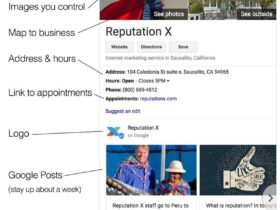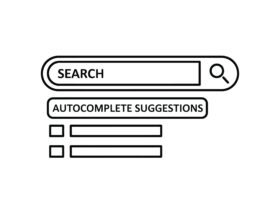Employee behavior plays a critical role in shaping a company’s reputation. Online conduct—whether on social media or in professional interactions—can significantly enhance or damage a company’s image.
What Is Employee Behavior?
Employee behavior refers to actions and interactions that employees display within a professional setting, both online and offline. These behaviors influence workplace feelings, team cohesion, and job performance. Whether positive or negative, how employees behave online—such as in social media posts or customer service interactions—can reflect on the organization. A key behavior that’s often overlooked is how personal social media posts or passive communication can affect the company’s reputation.
A supportive environment is essential for a positive work culture. Employees who engage positively with colleagues, follow clear expectations, and show self-confidence in their roles contribute to a productive work environment. Toxic behaviors, such as aggressive team members or people-pleasing behavior, can hinder team cohesion and disrupt this environment. Identifying and addressing these behaviors is crucial for maintaining a positive and effective workplace.
Types of Employee Behavior That Impact a Company’s Reputation
Employee behavior can be categorized into various types, each affecting the company’s reputation and team performance. These behaviors can be positive, neutral, or negative, and understanding them helps manage online conduct effectively.
1. Professional Conduct
Professional conduct in online settings is vital. Employees should communicate respectfully, follow company guidelines, and maintain professionalism on all platforms. Poor professional conduct can cause tension within teams, harm job satisfaction, and damage the company’s public image. Workplace leaders must model the behavior expected of their team, ensuring clear communication and adherence to professional standards.
2. Social Media Interactions
In today’s connected world, social media engagement plays a crucial role in shaping public perception. Employees can enhance the company’s reputation by sharing positive content, engaging with followers, and providing constructive feedback. However, inappropriate posts—such as offensive comments or controversial opinions—can damage the organization’s image. Employers must establish clear expectations for social media use, promoting positive engagement while addressing any inappropriate behavior swiftly.
3. Sharing Company-Related Information
Employees must be cautious when sharing company-related information online. Unauthorized disclosure of sensitive information can lead to legal and reputational consequences. Employers should create clear guidelines to protect confidential matters. Employees must understand the potential impact of their actions on the organization’s credibility and trustworthiness.
How Can Employee Behavior Online Damage a Company’s Reputation?
Inappropriate online behavior can severely damage a company’s reputation. Here are some common behaviors that can negatively impact an organization:
1. Negative Comments and Reviews
Negative comments from employees can quickly damage a company’s reputation. Whether shared on personal social media accounts or public forums, such comments can deter potential customers and erode trust. Negative feedback can spread rapidly, especially in an age of real-time online communication. Employers must focus on creating a supportive work environment where employees feel comfortable sharing constructive feedback rather than publicly airing grievances.
2. Inappropriate Content and Language
Posting inappropriate content or using offensive language online can damage an organization’s reputation. Discriminatory remarks, explicit language, or negative opinions about colleagues reflect poorly on the company. It’s crucial for workplace leaders to provide training on proper communication and set clear expectations for online conduct. When employees understand the consequences of inappropriate online behavior, they are more likely to maintain professionalism.
3. Sharing Confidential Information
Breaching confidentiality by sharing sensitive company information online can have severe consequences. This type of behavior can lead to legal issues, loss of customer trust, and long-term damage to the company’s image. Employees must understand the importance of maintaining confidentiality and follow guidelines that protect the company’s reputation. A breach of trust can be costly, not just in terms of reputation but also legally and financially.
4. Cyberbullying and Harassment
Toxic behaviors like cyberbullying and harassment can poison a company’s work culture. Such behaviors create a negative environment and affect employee morale. Employees subjected to bullying or harassment may experience decreased job satisfaction and productivity. Toxic behaviors can also lead to higher turnover rates and difficulty attracting top talent. Employers must address these issues quickly, ensuring a supportive and respectful environment for all employees.
The Consequences of Damaged Reputation
When employee behavior negatively impacts a company’s reputation, the consequences can be severe. Below are some potential outcomes:
1. Loss of Customers and Business Opportunities
A damaged reputation often leads to the loss of customers. Negative online feedback or poor employee conduct can discourage potential clients from engaging with the company. Research indicates that 87% of consumers read online reviews before making decisions. A tarnished reputation can prevent businesses from acquiring new customers and hinder opportunities for growth.
2. Decreased Employee Morale
A company’s reputation directly affects employee morale. When the organization faces public backlash or negative publicity, employees may feel disengaged and unmotivated. Job satisfaction can decrease, leading to lower productivity and higher turnover. Employees may become disillusioned if they feel their employer’s reputation is harming their own job satisfaction.
3. Legal Issues and Fines
Employee behavior can also lead to legal problems. Misconduct, such as harassment or data breaches, can result in lawsuits and fines. Legal consequences are often costly and time-consuming. By adhering to company policies and providing clear guidelines for online behavior, employers can reduce the likelihood of legal issues arising from employee conduct.
How to Manage Employee Behavior Online
Managing employee behavior online requires a proactive approach. Below are strategies employers can implement to safeguard the company’s reputation:
1. Set Clear Expectations
Employers must establish clear expectations regarding employee behavior, both online and offline. Providing guidelines on what’s acceptable behavior, whether posting on social media or engaging with clients, is essential. Measurable goals and clear communication help employees understand their responsibilities and contribute to maintaining a positive work environment.
2. Lead by Example
Workplace leaders must set the tone for acceptable behavior. By modeling positive conduct, such as effective communication and professionalism, managers encourage employees to follow suit. A good manager is a role model who demonstrates respect for colleagues, customers, and the organization. Leading by example also helps build trust and transparency within the team.
3. Provide Constructive Feedback
Providing timely and constructive feedback helps employees understand where they excel and where they need to improve. Feedback should be specific, actionable, and aimed at fostering growth. Regular evaluations give employees an opportunity to receive guidance on how they can enhance their job performance and contribute to a positive work environment.
4. Training and Education
Training sessions focused on appropriate online conduct, confidentiality, and ethics are essential for fostering positive employee behavior. These sessions should address the potential consequences of inappropriate online actions and provide tools for conflict resolution. Regular training ensures that employees stay informed about company policies and guidelines, reducing the risk of reputational damage.
5. Implement Monitoring Tools
Employers can use monitoring tools to track employee behavior online. Social media monitoring helps identify potential problems before they escalate. By observing employee interactions, employers can address issues quickly and ensure that employees are representing the company in a positive light. Monitoring tools also provide valuable insights into employee engagement and team performance.
6. Promote Positive Employee Engagement
Encouraging positive employee engagement is key to creating a supportive and productive work environment. Employees who feel valued are more likely to engage in positive behaviors both online and offline. Encouraging employees to share their ideas and contribute to team discussions fosters a sense of ownership and responsibility.
Conclusion
Employee behavior, both online and offline, plays a vital role in shaping a company’s reputation. By setting clear expectations, providing constructive feedback, and leading by example, employers can foster a positive work environment and ensure that employees engage professionally in every interaction. Building a harmonious workplace where employees understand the importance of their conduct online leads to better team cohesion, improved job performance, and a stronger company reputation. Through proactive management and clear communication, organizations can navigate the challenges of online behavior, protect their reputation, and achieve long-term success.















